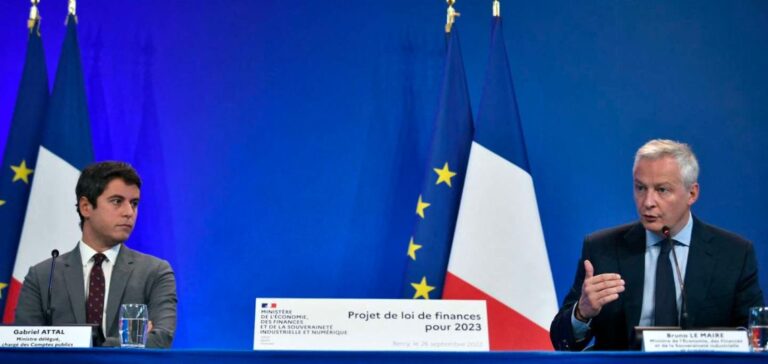France will stop granting export guarantees for new fossil fuel projects at the end of 2022, according to the Finance Bill (PLF) for 2023 presented to the Council of Ministers on Monday, thus ratifying a commitment made at the COP 26 in Glasgow.
“The PLF23 will provide to cease from January 1, 2023 to grant export guarantees for the entire value chain of the sector of all fossil fuels: from exploration-production upstream, to refining downstream, through transport and storage,” according to the budget documents consulted by AFP.
In October 2020, France announced the end of this aid for oil projects in 2025 and gas projects in 2035. At the time, it was widely criticized by environmental NGOs, which considered this disengagement to be too slow and warned that climate change would accelerate.
A year later, in the face of international pressure and criticism from NGOs, it finally joined a coalition of countries committed at COP 26 to ending foreign financing of fossil fuel projects without carbon capture technologies by the end of 2022, thus joining nations such as the United States and Germany.
“This is very good news,” said Anna-Lena Rebaud, of the NGO Friends of the Earth France, who even hailed “a decisive step forward.
The NGO feared “very important loopholes” in the text, the commitment made at COP 26 providing for exceptions and allowing in particular to continue to support new projects, on the pretext that there would be carbon capture and storage, “and this is not the case in this policy,” said Ms. Rebaud.
The only downside is that “as it stands, the policy still allows for the support of gas and oil-fired power plants, on the pretext that it could serve the energy transition of developing countries,” said the activist.
“For us, it is an argument that does not hold, insofar as investing today in this type of infrastructure, is to lock the developing countries in the consumption of oil and gas for years, “she said, highlighting also the methane leaks induced by the exploitation of gas.
The NGO therefore intends to ask for amendments in order to fill this gap.






















